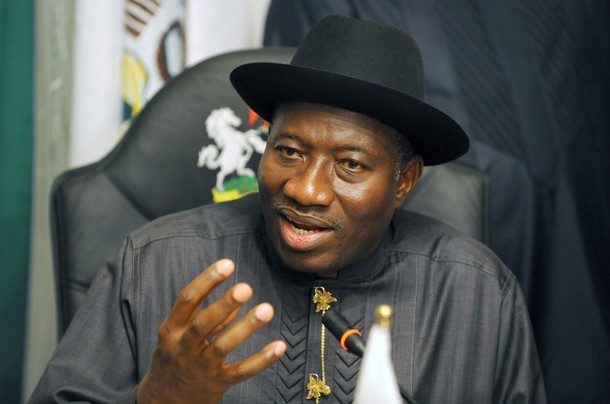The Secretary of State, United States of America, John Kerry, has alleged massive corruption at all levels of the Nigerian Government in the new report he submitted to the United States Congress.
The Report titled: “Country Reports on Human Rights Practices for 2012,” was prepared by the Department of State using information from US embassies and consulates abroad, foreign government officials, non-governmental and international organisations, and published reports.
According to the report revealed over the weekend, the section 4 that featured Nigeria under “Corruption and Lack of Transparency in Government,” disclosed “Massive, widespread, and pervasive corruption affected all levels of government and the security forces.”
Although the Nigerian law provides criminal penalties for official corruption, the report stated that: “government did not implement the law effectively, and officials frequently engaged in corrupt practices with impunity.”
The judiciary was also analysed and the report stated; “There was a widespread perception judges were easily bribed and litigants could not rely on the courts to render impartial judgements. Citizens encountered long delays and alleged requests from judicial officials for bribes to expedite cases or obtain favourable rulings.”
Furthermore, all major financial scandals within the period under review and how the issues were handled by government reflected in the report. “On April 18, a House of Representatives Committee led by Representative Farouk Lawan and charged with investigating the fuel subsidy programme from 2009 to 2011 released a report showing massive fraud, corruption, and inefficiencies in the operation of the program. The report alleged misappropriation of nearly half the subsidy funds, with poor or nonexistent oversight by government agencies.
“The report estimated government money lost to “endemic corruption and entrenched inefficiency” amounted to N1.067 trillion ($6.8 billion). The committee recommended reform of the oversight and enforcement mechanisms and further endorsed investigation and prosecution of culpable officials.”
“In July, the government released a list of those who had benefited illegally from the subsidy programme, which included relatives and colleagues of key government officials. In late July the EFCC began arraigning suspects, first with a group of 20 indictments, including six oil companies and 11 individuals.
“By year’s end the EFCC initiated prosecutions of approximately 50 cases related to the subsidy scam. The majority of these cases involved companies and individuals who had fraudulently received subsidy revenue. Investigations and trials had not produced any convictions by year’s end.”
Similarly, during the subsidy probe in June (2012), “allegations and a video surfaced, allegedly showing Lawan accepting a N94.2 million ($605,000) bribe from Entrepreneur Femi Otedola, who had advised Lawan on the investigation but whose company had not received fuel subsidy payments.
“After Lawan solicited the bribe from Otedola, the latter approached the SSS to record the hand-off as part of a “sting” operation. The attorney-general referred the case to the police for further investigation. The allegations initially overshadowed the committee’s findings, but the EFCC continued with investigations at year’s end.”
It also cited the stealing of 32.8 billion naira ($210 million) Police Pension Fund, which led to the arraignment of six suspects including a director at the Police Pension Office, Atiku Abubakar Kigo, who later rose to become permanent secretary in the Ministry of the Niger Delta, and the criminal charges against former Governor of Bayelsa State, Timipre Sylva, for laundering close to five billion naira ($32 million) of funds belonging to state.
Other corruption cases reported were the arrest of the former minister of Works and Housing, Hassan Lawal, for 24 counts of fraudulently awarding contracts, money laundering, and embezzlement of 75 billion naira ($480 million); arrest of Mr. Dimeji Bankole, former speaker of the House of Representatives, and Deputy Speaker Usman Nafada for the alleged misappropriation of one billion naira ($6.4 million) and 40 billion naira ($256 million) respectively; arrest of former Ogun State Governor, Otunba Gbenga Daniel, former Oyo State Governor, Chief Adebayo Alao-Akala, former Nasarawa State Governor, Alhaji Aliyu Akwe Doma, and former Gombe State Governor, Muhammed Danjuma Goje.
“The four (governors) allegedly misappropriated or stole 58 billion naira ($372 million), 25 billion naira ($160 million), 18 billion naira ($115 million), and 12.8 billion naira ($82 million), respectively. Their trials began in December 2011 and continued at year’s end”, the report disclosed.
It also cited the guilty plea entered by former Delta State Governor James Ibori in the Southwark Crown Court in London to charges of money laundering and other financial crimes totalling 12.4 billion naira ($79 million) he had committed during his eight years in office.
It, however, noted that, “Soon after the court announced Ibori’s conviction, the EFCC issued a statement it intended to pursue a case against Ibori in Nigerian courts.”
On the Freedom of Information Act (FOIA), signed into law in May 2011, which allows any person to request information from a government office, the report said “Civil society groups continued to introduce an increasing number of cases at the national and state level to test the FOIA during the year. Despite the number of cases introduced, there was only one reported successful prosecution during the year.”
The report also contained the declaration of assets by Nigerian public officials in pursuant to the constitution, “Public officials, including the president, vice president, governors, deputy governors, cabinet ministers, and legislators (at both federal and state levels), must comply with financial disclosure laws, including the requirement to declare their assets to the Code of Conduct Bureau (CCB) before assuming and after leaving office. Violators risked prosecution, but cases rarely came to conclusion.”
“In June the Socio-Economic Rights and Accountability Project and other groups demanded President Jonathan disclose his assets from 2007 to 2012. On June 24, the president refused the request.”



Leave a Reply